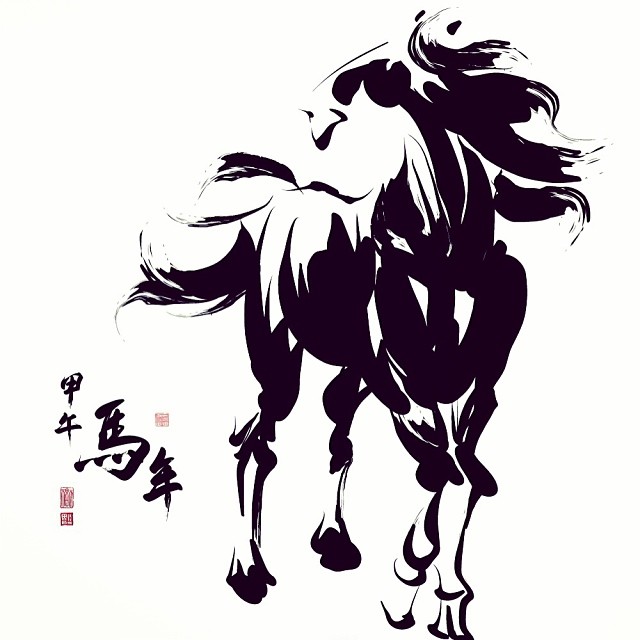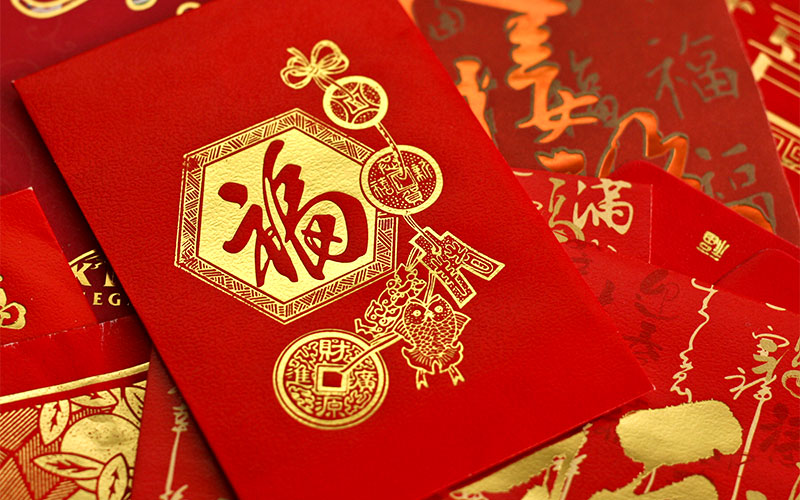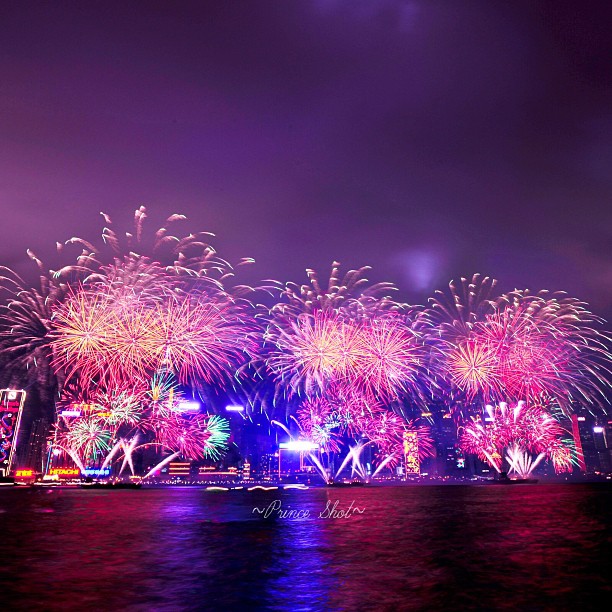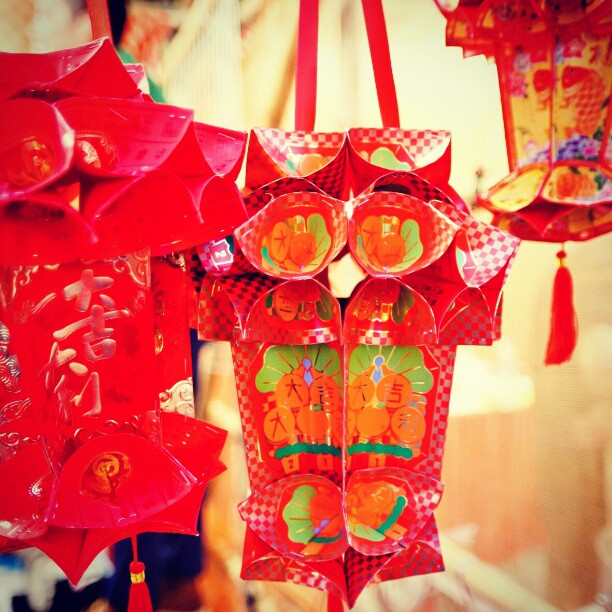By Localiiz
Branded | 14 May 2024
By Localiiz
Branded | 10 May 2024
By Localiiz
Branded | 27 March 2024
Copyright © 2024 LOCALIIZ | All rights reserved
Subscribe to our weekly newsletter to get our top stories delivered straight to your inbox.
The Year of the Horse - What does it mean?

Photo Credit: Instagram User: anina_vividluxury
The Chinese Zodiac or Lunar calendar is divided into 12 cycles, with each cycle lasting for approximately one Western calendar year. Animals are used to represent each cycle, with this year’s animal, the horse, positioned at number seven on the list of 12. It is said that people born during a certain cycle possess the same characteristics as their respective animal. Those born during the Year of the Horse are typically energetic, have a reckless streak, and are loved by their family, friends, peers and colleagues.Traditions and Customs
Like all Chinese festivals, the Lunar New Year period is steeped in tradition and culture. During the two weeks of celebration, specific foods are eaten on specific days, certain colours of are worn, gifts are given and homes are adorned with decorations thought to bring the family good luck for the coming year. Red Envelopes (Lai See) Red envelopes known as ‘Lai See’ are traditionally gifted over the Lunar New Year period, usually from the married to the unmarried. The red colour symbolises good luck, while the money inside usually ends with an even digit in accordance to Chinese beliefs. It is tradition to put brand new notes in the packets and polite to avoid opening them in front of relatives.
Clothing
As previously mentioned, the colour red symbolises happiness, so many people wear red during the holiday period. Yellow or gold hues were once reserved for the Emperor, but nowadays some people may opt to wear either a traditional yellow silk shirt or combine red with yellow and gold. Brides getting married over Chinese New Year may elect to wear a red dress at their reception.
Foods
Red envelopes known as ‘Lai See’ are traditionally gifted over the Lunar New Year period, usually from the married to the unmarried. The red colour symbolises good luck, while the money inside usually ends with an even digit in accordance to Chinese beliefs. It is tradition to put brand new notes in the packets and polite to avoid opening them in front of relatives.
Clothing
As previously mentioned, the colour red symbolises happiness, so many people wear red during the holiday period. Yellow or gold hues were once reserved for the Emperor, but nowadays some people may opt to wear either a traditional yellow silk shirt or combine red with yellow and gold. Brides getting married over Chinese New Year may elect to wear a red dress at their reception.
Foods
 Fruits and vegetables play a central role in all meals during the New Year. Most homes and businesses stock up on oranges, mandarins and red apples. Oranges and mandarins are chosen because the word for the fruit (吉) sounds like “ji”, which means good luck. Hong Kong’s streets will soon be lined with cute little mandarin bushes at every turn.
As the colour red symbolises happiness, red apples also feature prominently during the festival. In addition to these fruits, many families and offices will invite visiting guests to eat from their ‘tray of togetherness’, which typically contains items like candied lotus seeds, coconut, winter melon and small good luck pouches filled with chocolate coins.
Need some help getting stocked up for your Chinese New Year feast? Order all your food online at Jettfoods.com and get your groceries delivered straight to your door.
Green vegetables such as lettuce, spinach and celery symbolise vitality and are typically used in dishes cooked over the New Year period. On the first day of the New Year, most homes will prepare vegetarian dishes as they are thought to bring family members good luck and fortune.
Others foods are eaten on the days that follow, such as seafood and poultry on day two. Traditional celebratory snacks include a sticky rice cake called ‘lin gou’, dumplings filled with crushed nuts and lotus paste, barbecued pork slices, pig’s trotters, carp and black moss fungus.
Sayings
Traditional sayings and phrases are used to greet family members and friends over the New Year holiday. Many of these sayings are as old as the festival itself, and certain phrases will feature in the decorations people adorn their homes with. Some of the most common phrases in use today are:
Fruits and vegetables play a central role in all meals during the New Year. Most homes and businesses stock up on oranges, mandarins and red apples. Oranges and mandarins are chosen because the word for the fruit (吉) sounds like “ji”, which means good luck. Hong Kong’s streets will soon be lined with cute little mandarin bushes at every turn.
As the colour red symbolises happiness, red apples also feature prominently during the festival. In addition to these fruits, many families and offices will invite visiting guests to eat from their ‘tray of togetherness’, which typically contains items like candied lotus seeds, coconut, winter melon and small good luck pouches filled with chocolate coins.
Need some help getting stocked up for your Chinese New Year feast? Order all your food online at Jettfoods.com and get your groceries delivered straight to your door.
Green vegetables such as lettuce, spinach and celery symbolise vitality and are typically used in dishes cooked over the New Year period. On the first day of the New Year, most homes will prepare vegetarian dishes as they are thought to bring family members good luck and fortune.
Others foods are eaten on the days that follow, such as seafood and poultry on day two. Traditional celebratory snacks include a sticky rice cake called ‘lin gou’, dumplings filled with crushed nuts and lotus paste, barbecued pork slices, pig’s trotters, carp and black moss fungus.
Sayings
Traditional sayings and phrases are used to greet family members and friends over the New Year holiday. Many of these sayings are as old as the festival itself, and certain phrases will feature in the decorations people adorn their homes with. Some of the most common phrases in use today are:
Kung Hei Fat Choi - Happy New Year or Prosperous New Year Lung Ma Jing Sung - Healthy body, mind and spirit Gong Ho San Hei - Congratulations, new blessings and good wishes Daat Gai Daai Lei - Luck and prosperity Sang Yi Hing Lung - Business will be prosperous and popular Faai Gou Jeung Dai - (To children) Grow tall and strong
Main Events and Celebrations
New Year’s Eve, January 30th Most families will remain at home for their traditional family reunion meal on January 30th, which is usually followed by a visit to a local temple to pray to their ancestors and light incense. Virtually every temple in the city will be busy and wonderfully lit up and decorated. New Year’s Day, January 31st The Chinese New Year Night Parade is the main attraction in the city on January 31st, with this year’s theme being ‘New Year’s Party @ World City’. Thousands of people will line the route of the parade, which starts with a street party in Tsim Sha Tsui at 7pm and ends at the Sheraton Hong Kong Hotel around 10pm. There will be a variety of cultural performances from around Asia and the rest of the world. February 1st
Photo Credit: Instagram User: princeshot
On the second day of New Year, the 2014 Lunar New Year Fireworks take place in Victoria Harbour, so expect an amazing pyrotechnic display and visual spectacle beyond measure. The fireworks start at 8pm and admission is free, but as thousands of people are expected to congregate on both sides of the harbour, early arrival is advised. Want to watch the fireworks in true snazzy style? Book yourself a spot on Hong Kong Yachting's Chinese Banquet Party Cruise on February 1st! February 14th
Photo Credit: Instagram User: earlho
The 15th and last day of the festival is marked by the Spring Lantern Festival. Beautiful lanterns are hung around the city, particularly at temples, parks, restaurants and markets. Many locals will simply visit the nearest temple or park on this evening, but Westerners looking for somewhere to see the lights should head for Victoria Park or the Cultural Centre Piazza, where Hong Kong Leisure and Cultural Services Department will be holding special events. The night is also a special time for lovers, as many Chinese view it as their version of Valentine’s Day. Coincidentally, the festival this year also falls on the same date as the Western Valentine’s Day.For more insights on health and Hong Kong life, visit the Kwiksure blog.
Top